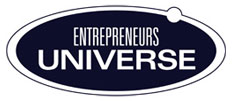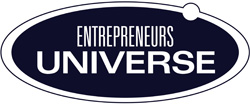A recent Entrepreneurs Universe “In Conversation …” event witnessed Tim Bleakley, CEO of Ocean Outdoor, outlined his journey and relationship with venture capital and the continued growth of the business after the initial investors excited with the business being sold to a private equity house for £35m.
Smedvig Capital and Entrepreneurs Universe jointly hosted an evening with Tim Bleakley, CEO of Ocean Outdoor, and previous MD of CBS International Outdoor and Viacom Outdoor, during which he shared his career journey with the audience. Attendees included CEOs, as well founders and Chairs of interesting growth companies.
Smedvig Capital initially invested in Ocean Outdoor, the UK leader and innovator in spectacular and iconic out of home advertising sites, in 2008. In May 2012, the business was sold to UK-based mid-market private equity house, Lloyds Development Capital (LDC), for £35m.
Here’s a snapshot of the conversation:
Where did the urge come from to become an entrepreneur?
I was entrepreneurial in early life, and that stayed with me well through corporate life – running businesses and turning brands around – but I never really shared in the value creation.
I feel almost born again in the world of private equity where there is freedom to run the business, support, encouragement and drive, with little red tape around it. I find that really invigorating.
What made you take the jump from the corporate world into the PE world? And, why Smedvig Capital?
When I was making the decision, it was about trying to match the things I was passionate about and being relatively bold about those things I was good at. You have to be honest with yourself – know your strengths and weaknesses. Building teams, turnaround across a three or four year period, innovation and ideas, and energy have always been things I have had in abundance.
The great thing about private equity is that for a lot of the things I wasn’t as qualified in, a good VC house has in spades, but they don’t necessarily have some of the attributes that their CEO or management team might have.
You have somebody in the background to guide you through the labyrinth – particularly in a business that’s failing – to get it back on track. I think that’s a lethal combination.
I found myself lucky in a small business that had the potential to have a really large profile, and was at the beginnings of something very exciting which I understood; the transition from analogue to digital. You could recognise very quickly that this was a business that had massive potential.
I’d like you to amplify what you found are the key differences between PE and non-PE?
You have to be able to think quickly and move fast in this day and age, and in large corporates you can get a lot of unnecessary stagnation and red tape.
In my experience of private equity, strong chairmanship is very important for corporate governance, and also integrity of shareholders and the board are very important. I found there is more cutting through what really matters in corporate governance versus what is just red tape.
In order to move quickly and move fast you need support – you don’t need the red tape – and you need strong chairmanship, as well as shareholders and investors with integrity.
On your new journey in the PE world what have you particularly enjoyed?
There are a number of things I have enjoyed. In my view if you’re not learning you’re not living. I found the learning experience really invigorating, and felt I was becoming a better businessman on the back of their expertise; it wasn’t a one-way street from a development point of view.
I found the entrepreneurship, drive and pace motivational because there is a focus on what really matters. At Smedvig and LDC, they are very good at helping management teams focus on the key metrics for growing a business.
Those things lend themselves to freedom to operate, and agility. That sort of environment encourages innovation, ideas and people moving at the right pace, under the right sorts of pressures.
What do you think the world of PE can do for the wider economy? What do you think it can do to kick-start the economy?
The more that can be done in really understanding the nature and the mind sets of the teams you are investing in early on, the more there will be to share at the end of the day as the business is a success. I encourage all PE firms to invest more in the early stages in how they analyse people skills.
We need people to invest in those who have ideas and energy; people who are willing to say they have a good idea but need the help, skills and management set, and need capital.
What do you think the biggest challenge facing entrepreneurs is today?
The pace of technological change is phenomenal – I think that is both the biggest opportunity and the biggest risk. Personally I am a huge believer in people and team building. I think having the right people around you and spending a lot of time on that in the early stages of any start-up or business will pay dividends in the end.
Firstly because it can protect you from the risk of changes in technology – you should have the right people around you who are adaptable and understand it – and also because one of the biggest challenges right now is around retention of talent.
You are known for building leading management teams, and for your leadership. Where and how have you found your top people?
It’s a combination of experience over time; I have always spent a lot of time recognising talented people early on in their careers – marking them down mentally – as one day it might be worth giving them a call. Hopefully I create an enjoyable environment in which people can work. As I have moved I have been able to take people with me and recruit good talent.
I have often looked in other sectors as well. I think it’s usually important in a fast turnaround or a brand turnaround within a media organisation to drop a few grenades in there to change the status quo. That usually means going to a different sector that has some similar attributes but perhaps quite a different way of thinking.
When you have put your team together, and you have a clear picture of the progression that they are going to make, what do you do to grow your team and people?
In large businesses open communication is very important; you have to get messages out so that people understand change. I am a massive believer in development; a lot of that is around transparency. I like to allow people to come into their working life and it to be an extension of their lives.
Abstract training is something I am a big believer in – putting people in an environment where they can ask stupid questions and learn is very important – particularly at a senior level. I am also a believer in taking people out of the comfort of their environment and getting them to do different things.
In PE in particular, it’s very important to do things in an all for one, one for all basis. We created an atmosphere at Ocean where everybody is sharing in the value. The talk of exit is banned – people don’t want to work in a business that’s going to end – people want to work in a business where they are going to grow, and they’re taking it somewhere.
MBAs or managers? (Experience based vs. book based?)
There is huge value in technical development; a lot of people are massively successful having had that sort of training and education. In terms of actual management and leadership, there is no text book in my view. Your experiences in life are the things that influence your style of leadership, and your ability to relate to and interact with other human beings.
What are your own drivers and values?
Firstly, challenge is very important to me; the idea of being able to do something that somebody has said is not possible is a big personal motivator.
The second thing is people; I need the energy of people around me and I enjoy the interaction between people.
Honestly, I am more interested in building a media brand that has a reputation for changing the model in our sector, or doing something that people didn’t think was possible, than the cheque at exit.
Who’s had the biggest influence on you, and what was it?
Sir Robin Miller and Kelvin MacKenzie, from an inspirational point of view. Sir Robin Miller always said management isn’t about privileges, he was very people orientated and instilled the ethos at Emap. Kelvin MacKenzie was hugely influential personally because of his sheer front against the establishment.
Also Tom Goddard, who was Global Chief Exec at CBS, and is now Chairman at Ocean (and a number of other companies). My father was also a huge influence on me; he was a state educator in the comprehensive system and always saw the good in people. He is someone I perhaps get some of my people skills from.
Looking back on your career, what would you have done differently?
I would have left corporate life 8-10 years earlier. I should have probably followed my instincts and moved into this entrepreneurial part of business life earlier.
What does the future hold for Ocean, and for Tim Bleakley?
We specialise in large giant format digital out of home displays, and also spectacular displays such as the Imax at Waterloo. We specialise in those stand-out locations, and operate 35 to 40 of those locations. I think our smallest competitor operates about 6/700 billboards. There are four players, who control 90% of the market, and they all have tens of thousands of billboards; we are a precision specialist in the part of the market that is growing the fastest.
The future of our business – what will take us from a £35m business to a £100m business – we hope is all around Ocean being the bridge between the old and the new. We have put technology on the streets that’s not being driven at full speed in many ways, and the next part of our development is trying to form that bridge between the technology that’s on the street, which can display fantastic looking full motion pictures and video etc., but also can connect machine to machine. The next stage for us is around mobile out of home; how are we going to connect this fantastic kit we put on the streets to tablet devices.
For me personally, perhaps move into another sector and turn something around on a larger scale where I have some share of the value creation. After that opportunity, what I’d like to do is try and legitimise some of my theories and share them in a collegiate way.



